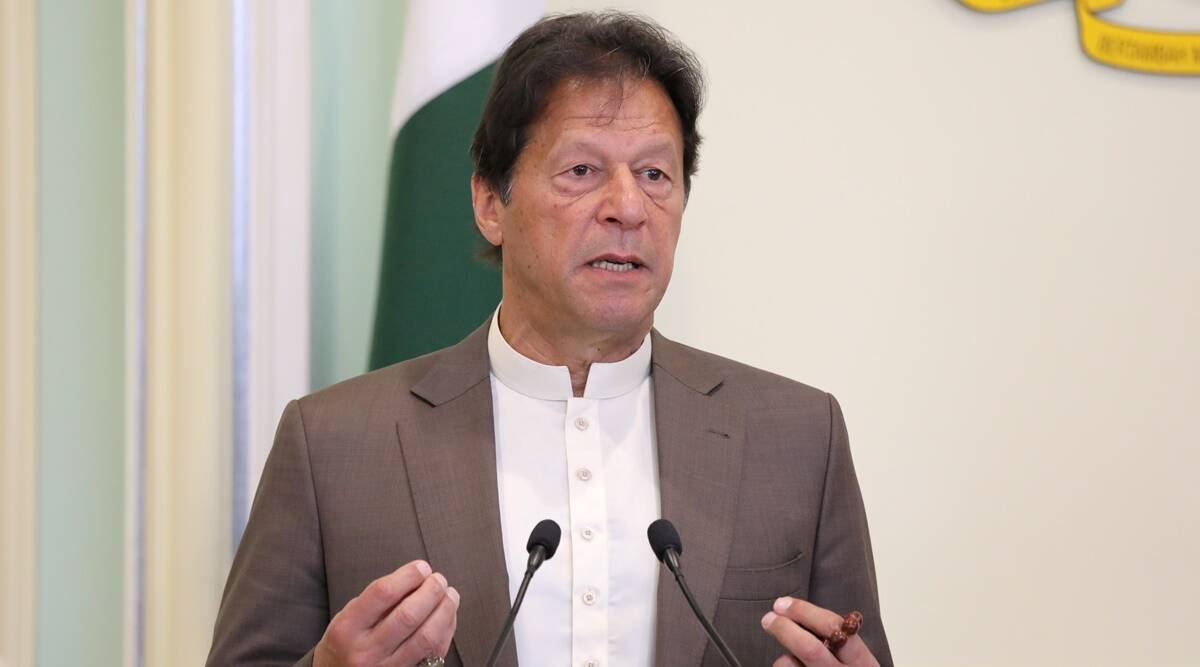Many of us have analysed the ongoing battles in Ukraine as a proxy war by the US against Russia. As proxy contests go, however, that may be outstripped by the trial of strength between the world’s major agencies in the power games that are likely to play out in Pakistan in the next few weeks.
Strenuous efforts will no doubt be made to influence not just what Prime Minister Imran Khan does next, but also the army brass, the president, speaker, top judges of the country’s supreme court, opposition leaders, and even key players in Khan’s own party.
Khan bowled a ‘googly’ by pointing a finger directly at the US, as the power behind the recent no-confidence motion that was brought against his government. He even named a senior US official as the man behind the attempted regime change.
That promptly caused a public rift between Imran and his country’s very powerful army. The Chief of Army Staff Qamar Bajwa publicly stated that the US was Pakistan’s most reliable backer.
At one level, then, the next few weeks will see a tug-of-war between Khan and the army, with global forces pulling strings on either side.
The rivalry could be played out during elections, for the Pakistan Army has rich experience in influencing the outcome of polls. It could even be played out without an election—if the army decides to take over the reins of power directly through another military coup.
In making that charge against the US publicly and directly, Khan must have calculated that evoking nationalism against foreign interference would help him win the public support. Whether or not sufficient public support will indeed be generated is remain to be seen.
Other political parties will no doubt go all out to rally their supporters in public demonstrations against Khan’s government on the ground that his rule now lacks legitimacy.
There is no denying that Khan had lost majority support in the National Assembly, and thwarted the motion of no confidence with a series of smart political moves, the legality of which is suspect.
First, he got the speaker to throw out the no-confidence motion on the ground that it represented foreign interference. Then he got the president to accept his recommendation that the assembly is dissolved and fresh elections be called.
Geopolitics of Imran’s anti-US card
A huge question mark hangs over whether China and Russia will be encouraged enough by his public attack against the US to back Khan, even against his army. That attack must surely have been music to Russian ears, especially since Khan suggested that the US was punishing him for having visited Moscow just when the Kremlin kicked off the invasion of Ukraine.
The Kremlin is not without powerful resources. Indeed, Russia has been suspected of influencing elections in various countries, including even the US, through cyber manipulation of social media and other messaging.
However, it is China that has far greater direct influence in Pakistan, both in the civilian administration and the military. China has chosen to stay its hand with regard to the war in Ukraine, not stridently backing or opposing either side.
China could use quiet influence to get Pakistan’s military to allow Khan to remain in power at least until elections are held. It could then choose to back another contender for power at the hustings.
In the circumstances that have developed, it can be taken for granted that the US will use diplomatic, public, and covert influence to ensure that Khan loses power, either before or through elections.
Significantly, Tahir-ul Qadri, the political cleric with Canadian roots, has reappeared in Pakistan’s public life. Some analysts suspect that he has links to the US.
US influence remains crucial
Imran’s accusation must make policymakers in the US feel very hard done by, since they as good as handed over Afghanistan to Pakistan just eight months ago. Several leading Afghans see the incumbent Taliban regime, which the US as good as ushered into office, as a proxy of Pakistan.
No doubt Bajwa’s quick damage control attempt stemmed from fear that the US could instigate trouble again in Pakistan’s backyard. He went out of his way to show that at least the Pakistan Army is equally beholden to its two mentors—China and the US. That balance is also important to prevent the country from becoming more decidedly a Chinese vassal.
Nor can we lose sight of the fact that US assistance is crucial to keep Pakistan afloat financially. Its economy is in deep trouble, and the spectre of what is happening in Sri Lanka must cause Pakistan’s policymakers deep worry.
(David Devadas is a journalist and security, politics and geopolitics analyst.)
(Disclaimer: Views expressed above are the author’s own.)










